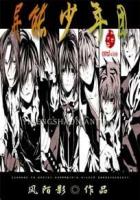Soc.Here then is one kind of pleasures and pains originating severally in the two processes which we have described?
Pro.Good.
Soc.Let us next assume that in the soul herself there is an antecedent hope of pleasure which is sweet and refreshing, and an expectation of pain, fearful and anxious.
Pro.Yes; this is another class of pleasures and pains, which is of the soul only, apart from the body, and is produced by expectation.
Soc.Right; for in the analysis of these, pure, as I suppose them to be, the pleasures being unalloyed with pain and the pains with pleasure, methinks that we shall see clearly whether the whole class of pleasure is to be desired, or whether this quality of entire desirableness is not rather to be attributed to another of the classes which have been mentioned; and whether pleasure and pain, like heat and cold, and other things of the same kind, are not sometimes to be desired and sometimes not to be desired, as being not in themselves good, but only sometimes and in some instances admitting of the nature of good.
Pro.You say most truly that this is the track which the investigation should pursue.
Soc.Well, then, assuming that pain ensues on the dissolution, and pleasure on the restoration of the harmony, let us now ask what will be the condition of animated beings who are neither in process of restoration nor of dissolution.And mind what you say: I ask whether any animal who is in that condition can possibly have any feeling of pleasure or pain, great or small?
Pro.Certainly not.
Soc.Then here we have a third state, over and above that of pleasure and of pain?
Pro.Very true.
Soc.And do not forget that there is such a state; it will make a great difference in our judgment of pleasure, whether we remember this or not.And I should like to say a few words about it.
Pro.What have you to say?
Soc.Why, you know that if a man chooses the life of wisdom, there is no reason why he should not live in this neutral state.
Pro.You mean that he may live neither rejoicing nor sorrowing?
Soc.Yes; and if I remember rightly, when the lives were compared, no degree of pleasure, whether great or small, was thought to be necessary to him who chose the life of thought and wisdom.
Pro.Yes, certainly, we said so.
Soc.Then he will live without pleasure; and who knows whether this may not be the most divine of all lives?
Pro.If so, the gods, at any rate, cannot be supposed to have either joy or sorrow.
Soc.Certainly not-there would be a great impropriety in the assumption of either alternative.But whether the gods are or are not indifferent to pleasure is a point which may be considered hereafter if in any way relevant to the argument, and whatever is the conclusion we will place it to the account of mind in her contest for the second place, should she have to resign the first.
Pro.Just so.
Soc.The other class of pleasures, which as we were saying is purely mental, is entirely derived from memory.
Pro.What do you mean?
Soc.I must first of all analyse memory, or rather perception which is prior to, memory, if the subject of our discussion is ever to be properly cleared up.
Pro.How will you proceed?
Soc.Let us imagine affections of the body which are extinguished before they reach the soul, and leave her unaffected; and again, other affections which vibrate through both soul and body, and impart a shock to both and to each of them.
Pro.Granted.
Soc.And the soul may be truly said to be oblivious of the first but not of the second?
Pro.Quite true.
Soc.When I say oblivious, do not suppose that I mean forgetfulness in a literal sense; for forgetfulness is the exit of memory, which in this case has not yet entered; and to speak of the loss of that which is not yet in existence, and never has been, is a contradiction; do you see?
Pro.Yes.
Soc.Then just be so good as to change the terms.
Pro.How shall I change them?
Soc.Instead of the oblivion of the soul, when you are describing the state in which she is unaffected by the shocks of the body, say unconsciousness.
Pro.I see.
Soc.And the union or communion of soul and body in one feeling and motion would be properly called consciousness?
Pro.Most true.
Soc.Then now we know the meaning of the word?
Pro.Yes.
Soc.And memory may, I think, be rightly described as the preservation of consciousness?
Pro.Right.
Soc.But do we not distinguish memory from recollection?
Pro.I think so.
Soc.And do we not mean by recollection the power which the soul has of recovering, when by herself, some feeling which she experienced when in company with the body?
Pro.Certainly.
Soc.And when she recovers of herself the lost recollection of some consciousness or knowledge, the recovery is termed recollection and reminiscence?
Pro.Very true.
Soc.There is a reason why I say all this.
Pro.What is it?
Soc.I want to attain the plainest possible notion of pleasure and desire, as they exist in the mind only, apart from the body; and the previous analysis helps to show the nature of both.
Pro.Then now, Socrates, let us proceed to the next point.
Soc.There are certainly many things to be considered in discussing the generation and whole complexion of pleasure.At the outset we must determine the nature and seat of desire.
Pro.Ay; let us enquire into that, for we shall lose nothing.
Soc.Nay, Protarchus, we shall surely lose the puzzle if we find the answer.
Pro.A fair retort; but let us proceed.
Soc.Did we not place hunger, thirst, and the like, in the class of desires?
Pro.Certainly.
Soc.And yet they are very different; what common nature have we in view when we call them by a single name?
Pro.By heavens, Socrates, that is a question which is, not easily answered; but it must be answered.
Soc.Then let us go back to our examples.
Pro.Where shall we begin?
Soc.Do we mean anything when we say "a man thirsts"?
Pro.Yes.
Soc.We mean to say that he "is empty"?
Pro.Of course.
Soc.And is not thirst desire?
Pro.Yes, of drink.
Soc.Would you say of drink, or of replenishment with drink?
Pro.I should say, of replenishment with drink.















